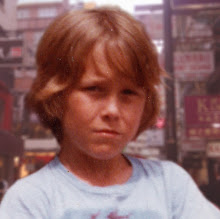Today is the final day of Music Week, and we present to you a person that probably nobody hates. When his songs come on the air, is there anyone who says "Oh god. This frikkin guy. I'm leaving the room an an angry fashion immediately."?
You may recognize his name. We're entering the Vince Guaraldi time of year, when you'll be hearing his music in all the Charlie Brown holiday specials. But, you can assign your self some musical street cred bonus points by getting his Greatest Hits album, which features a lot of music from his career before he ever got the Peanuts gig. Yes, that's right! He had a life before Charlie Brown!
Guaraldi's recording career started in the early Fifties, on an album with the fantastic jazz vibraphonist (No, I'm not being sarcastic) Cal Tjader. He eventually started his solo career in 1959, and did a lot of great stuff before being knighted the Charlie Brown Minstrel in 1965 with the release of A Charlie Brown Christmas.
His style, like a lot of 60's era jazz, was heavily influenced by sambas and other Brazilian rhythms, which were brought back to America by soldiers returning from World War II. See? War. Ughhh. Good gawd yaww. That's what it's good for!
Dig the Ginza Samba...
Cast Your Fate to the Wind was Guaralid's big grammy winning hit from 1963, and basically won him the Charlie brown gig when the animation producer Bill Melendez heard the song and asked Guaraldi if he would do some music for a little project he had coming up.
The rest is seasonal TV history. But, do yourself a favor and hip yourself to the samba jive by making the scene on his earlier career. It's just as charming, but you can still feel like a sophisticated grownup and stuff when you put it on.
Subscribe to:
Post Comments (Atom)










3 comments:
Seems a little odd that American soldiers were bringing Brazilian music back from World War II. Maybe escorting some German VIPs into a life of exile?
This notion was something covered in a class I took in college: The History of Pop Music. College being a dim memory for me, I can't remember any evidence he cited. As a result, I can't prove this. But anyway, the basic idea is that, after WWII, soldiers who had traveled the world - including the south pacific and all the islands down there - came home, bringing with them some musical influences from all those nations. Mambo, Bossa Nova, and other Afro-Cuban type rhythms had a rejuvenating effect on jazz starting just after the war. Sorry I can't prove any of this just now. It would be great to find some reference for this, but it's a tricky search string, isn't it?
Maybe the interest in Latin jazz in general came in via the Cuban diaspora during the Cuban revolution?
Post a Comment